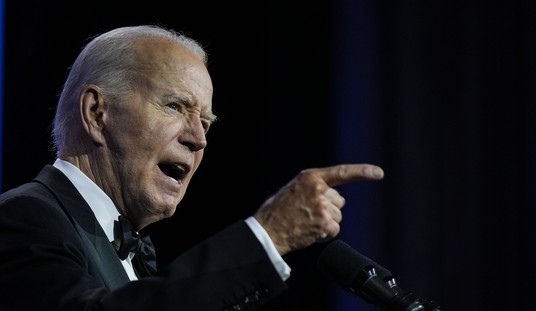The script needs to flip on the green crowd. The mainstream media typically frames our ongoing debate on the subject of climate change as noble climate scientists on one side against flat-earth-preaching “deniers” on the other.
In a segment of NPR’s “All Things Considered” from earlier this month, host Melissa Block played denier’s advocate in an interview with National Oceanic and Atmospheric Administration chief greenhouse gas scientist Pieter Tans. Following up on Tans’ claim that we’ve reached a “global carbon dioxide level milestone” and that the recently measured amount of carbon dioxide hasn’t been seen in millions of years, Block presented a counterpoint:
BLOCK: Now, wouldn’t some people say though that if this same level was reached three or four million years ago, that that indicates climate change isn’t man-made, this happened before?
TANS: Well, yes, climate has changed before dramatically. In most cases though, the pace of that was very, very slow. What is really special about modern times is that human activity on the geologic time scale is like an explosion.
Typically, this is where the debate on climate change pivots, on the question of whether human activity presents a catastrophic threat to the environment. However, a later comment from Tans suggests that we ought to shift the focus from whether there’s a problem to the whether we can afford the proposed solution. Check this out (emphasis added):
BLOCK: And what would it take to reverse the carbon dioxide concentration levels that you’re seeing now?
TANS: See, that is really at the core of why we have made so little progress. The problem with CO2 in particular is that climate – forcing of climate change by CO2 depends not so much on the rate at which we are emitting it. It depends primarily on the total amount of CO2 that we’ve emitted since pre-industrial times.
The implication is that if we want to stop this, we have to bring the emissions back down to zero. That is a very tall order. I mean, I can understand why there is reluctance to take this on seriously. Of course, it’s still in our power to make it much worse. So if we can’t stop emitting at a very aggressive pace, the risks for future generations are much larger.
Zero. In other words, we need to put a halt to human civilization.
Excellent. That’s the debate I want to have. Let’s go out and ask the American people whether they’re so concerned about anthropogenic climate change that they’re willing to freeze to death next winter, assuming they don’t starve before that. Every single aspect of civilized human life produces carbon emissions directly or indirectly. So what Tans is saying, in essence, is that humans have to go.
That’s where the climate change debate needs to shift, away from whether human activity causes it to the more relevant question: so what if it does? What does climate change matter if the prescribed solution is ending human civilization?









Join the conversation as a VIP Member